Books
Books
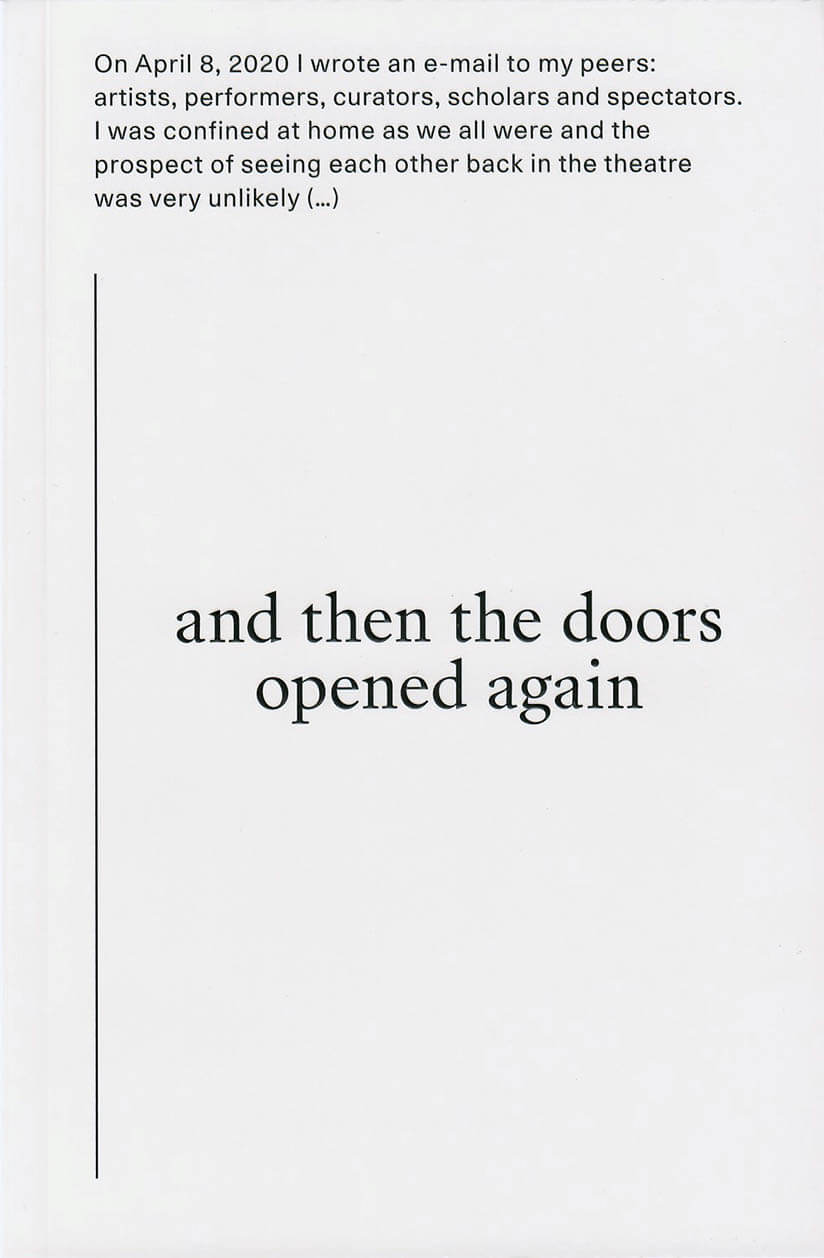
and then the doors opened again
Locked down at home during the first wave of Covid-19, David Weber-Krebs kept on thinking about the day when theatres would open their doors again. At that point, it was somehow difficult to even picture that moment.
On the 8th of April, 2020, in the middle of the lockdown, David sent an e-mail to his peers: artists, scholars, curators, and spectators belonging to different art communities. In this e-mail, there was a simple question: What will happen on your first theatre visit after the lockdown?
It was an invitation to imagine the future of theatre from this very specific moment when theatres were all closed and when it was not clear how and when and if they would open again.
With contributions by: Paula Almiron, Kristof van Baarle, Sven Age Birkeland, Antonia Baehr, Caroline Barneaud, Nicole Beutler, Maaike Bleeker, Julien Bruneau, Pieter De Buysser, Alondra Castellanos, Chloé Chignell, Amélie Coster, Jasper Delbecke, Zoë Demoustier, Wouter De Raeve, Charlotte De Somviele, Katja Dreyer, Jeroen Fabius, Silvia Fanti, Far, Nicolas Galeazzi, Emilie Gallier, Nada Gambier, Melih Gencboyaci, Konstantina Georgelou, Kristof van Gestel, Matthieu Goeury, Maximilian Haas, Ant Hampton, David Helbich, Marijke Hoogenboom, Rita Hofwijk, Breg Horemans, Asa Horvitz, Dolores Hulan, Mette Ingvartsen, Myriam Van Imschoot and Marcus Bergner (MM), Stefan Kaegi, Edyta Kozak, Bojana Kunst, Rudi Laermans, Sarah van Lamsweerde, Heike Langsdorf, Mylène Lauzon, André Lepecki, Kopano Maroga, Ivana Müller, Phoebe Osborne, Leonie Persyn, Julie Pfleiderer, Antoine Pickels, Amanda Piña, Jan-Philipp Possmann, Fransien van der Putt, Irena Radmanovic, Anna Rispoli, Martina Ruhsam, Jonas Rutgeerts, Nienke Scholts, Ula Sickle, Michael Simon, Karoline Skuseth, Lara Staal, Christel Stalpaert, Danae Theodoridou, Pankaj Tiwari, Vera Tussing, Marie Urban, Michiel Vandevelde, Hidde Aans Verkade, Mathilde Villeneuve, Georg Weinand, Stefanie Wenner, Siegmar Zacharias, Andros Zins-Browne.

on the future and the artist-run spaces
Artists, curators and writers describe their vision on the role of artist-run spaces for the future and discuss their own position in the world of art. The authors weigh in on the importance of artist-run spaces and reach out to anyone looking for alternative ways of thinking, working and living together.

Forms of Public Privacy
Forms of Public Privacy is part of the larger FORMAT 2019 exhibtion ‘Changing Attitudes’ in Z33, Hasselt. As a critique on the current urban trend to overpragram and overdesign Belgium cities, and Western cities in general, a reasearch is done into five cases of abandoned and un-maintained spaces in Brussels. In the exhibition a series of sculptural models show architectural elements of the investigated spaces that provide a certain spatial intimacy and public privacy. These models, together with photographs of Axel de Marteau and a publication, argue for the value of these abandoned and un-programmed spaces within an urban setting. Their informal programs such as hangout spots, living spaces and meetings spaces form a vital part of the social spaces and commons of our cities.
This is the publication to that research.
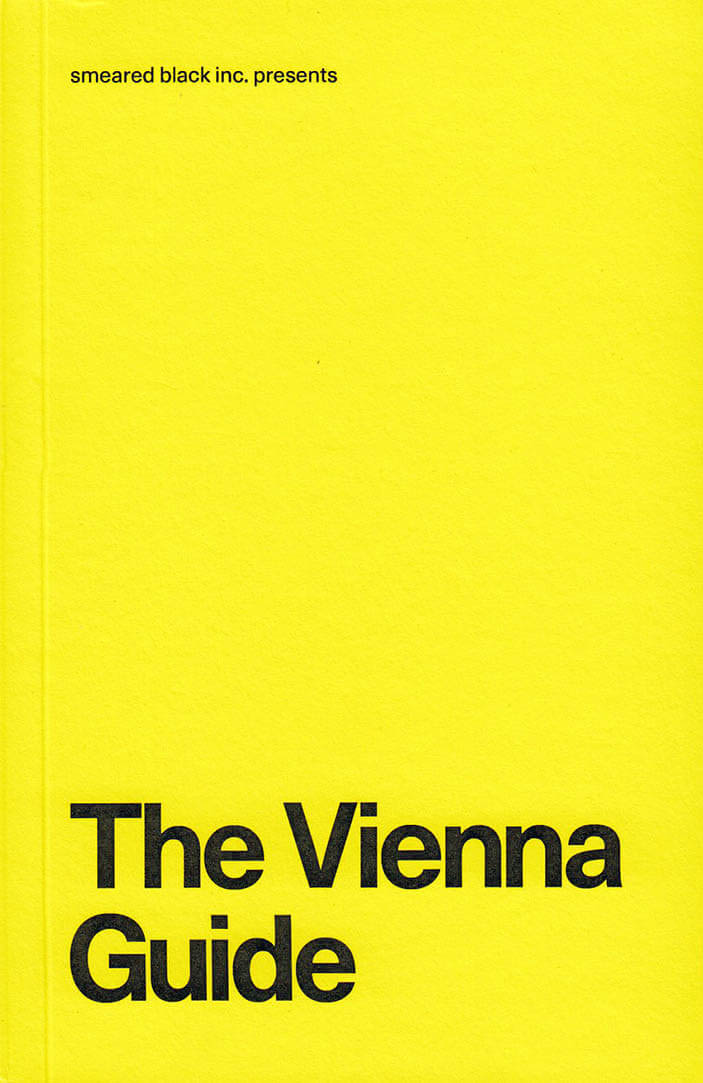
The Vienna Guide
The Vienna Guide is conceptually built upon ‘travel notes” compiled and edited on the occasion by artist Tony Cokes. Adopting the point of view of the flaneur, Cokes creates a speculative image of Vienna by appropriating and meshing non-art, historical figures, touristic clichés and club nights, all entwined in technological commentary. This distant gaze – Cokes hasn’t visited Vienna in the last 20 years – facilitates an aerial view of the complexities and unique traits that characterizes it. Commissioned by Attilia Fattori Franchini the Guide proposes to approach Vienna – and any urban site – as a discursive platform for future possibilities and identities.
The Vienna Guide by Tony Cokes comprises 3 stickers of video stills of Cokes’ videos Could you visit me in dreams? (2018), published in an edition of 150 + 25.

a queer anthology of healing
a queer anthology of healing is a subtle, devastating mix of cuteness and embarrassment, beauty and confession, magic tricks and pain. The artworks and writings in this collection suggest that healing can be achieved through revelation, invocation, observation and disclosure. It’s a much-needed gift right now. - Chris Kraus
with Clay AD, Harry Agius, Barney Ashton-Bullock, Bodie Bellamy, Jack Bigglestone, Nick Blackburn, Helen Cammock, Charity Coleman, Swithun Cooper, Paul Gabrielli, Evan Garza, Erica Gillingham, Daniel Givens, Pete Hammond, Benedict Hawkins, Georgie Henley, Lubaina Himid, Fanny Howe, Jasmine Johnson, G.B. Jones, Kevin Killian, Wayne Koestenbaum Nic Lachance Olivia Laing, Benedict Leader, Paul Lee, Mary Manning, Ben Miller, D. Mortimer, Monique Mouton, Annie Murrells, Chuck Nanney, David Nas, Isobel Neviazsky,Paul P. , Richard Porter,Peter Scalpello, Hyacinth Schuss, Ryan Skelton, Verity Spott, Edward Thomasson, Timothy Thornton, Declan Wiffen, Ian Wooldridge

Just Us (hardcover)
As everyday white supremacy becomes increasingly vocalized with no clear answers at hand, how best might we approach one another? Claudia Rankine, without telling us what to do, urges us to begin the discussions that might open pathways through this divisive and stuck moment in American history.
Just Us is an invitation to discover what it takes to stay in the room together, even and especially in breaching the silence, guilt, and violence that follow direct addresses of whiteness. Rankine’s questions disrupt the false comfort of our culture’s liminal and private spaces—the airport, the theater, the dinner party, the voting booth—where neutrality and politeness live on the surface of differing commitments, beliefs, and prejudices as our public and private lives intersect.
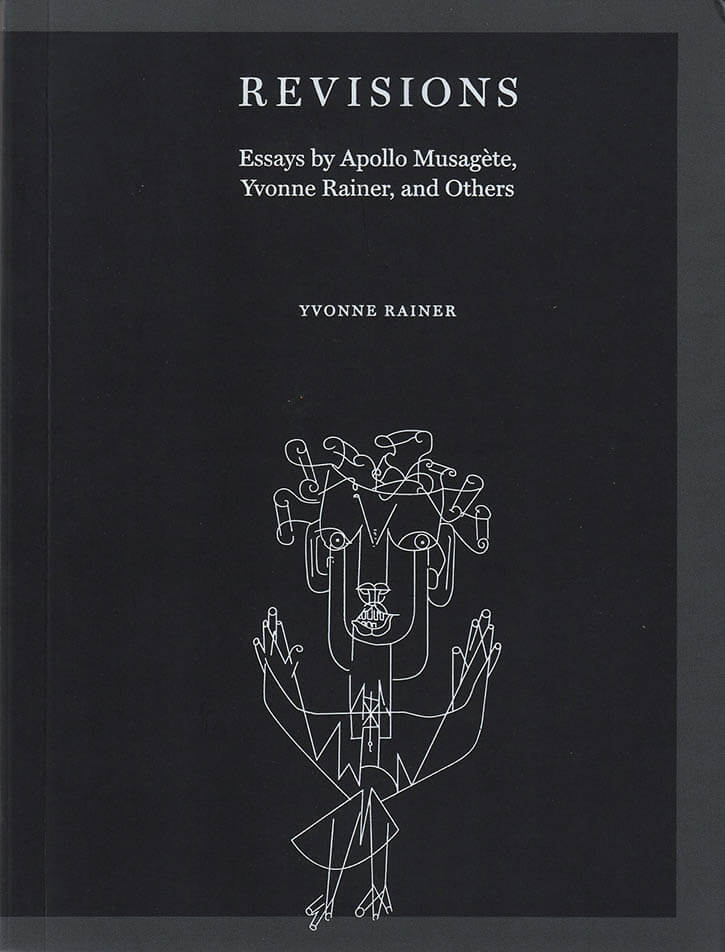
Revisions
The final iteration of Rainer's dance rant A Truncated History of the Universe for Dummies, accompanied by texts offering a real-time account of Rainer's creative process.
Choreographer and filmmaker Yvonne Rainer has long investigated the ways in which movement can be a political act in and of itself—on the stage, on the screen, or at the lectern. In Revisions, Rainer pushes her interest in embodied activism to a new arena: what she calls the “dance rant.” This volume includes the final iteration of Rainer's latest dance rant, entitled A Truncated History of the Universe for Dummies. This performance piece evolved in live presentations in Dublin, Stockholm, and New York before being expanded and adapted in written form here. In this now-completed work, Rainer mobilizes her rage and bafflement at contemporary political events through the guise of Apollo, Leader of the Muses.
Revisions also includes a compilation of emails and diary entries that provide a real-time account of Rainer's process of creating and workshopping a dance. “Pedagogical Vaudeville 3” reveals Rainer's consistent interest in reworking and reconsidering material across multiple mediums, formats, and contexts, and offers a unique glimpse at the working methods of one of this century's preeminent dance artists.
Bookended with an introduction by artist and scholar Gregg Bordowitz and an analysis of Rainer's AG Indexical with a Little Help from H. M. by dance historian Anna Staniczenko, these texts serve not only as a revision of the conventional understanding of five decades of Rainer's production, but also as a timely manual for performance as an act of resistance.

Thresholes
THRESHOLES is both a doorway and an absence, a road map and a remembering. In this almanac of place and memory, Lara Mimosa Montes explores the passage of time, returning to the Bronx of the ’70s and ’80s and the artistry that flourished there. What is the threshold between now and then, and how can the poet be the bridge between the two? Just as artists of that time highlighted what was missing in the Bronx, this collection examines what is left open in the wake of trauma and loss.
Lara Mimosa Montes is a writer based in Minneapolis and New York. Her poems and essays have appeared in Academy of American Poets’ Poem-A-Day, BOMB, Boston Review, Hyperallergic, Jacket2, and elsewhere. She is a 2018 McKnight Writing Fellow and CantoMundo Fellow. She holds a PhD in English from The Graduate Center, City University of New York. Currently, she works as a senior editor of Triple Canopy. She was born in the Bronx.

Nicole Eisenman
Clotilde Viannay, Nicole Eisenman
L'Incroyable is a monographic magazine dedicated to an artist's teenage years and his cultural background. This third issue proposes an immersion into the young years of artist Nicole Eisenman in New York in the 1980s.
Founded in 2015 by artist Clotilde Viannay, L'Incroyable magazine is dedicated to adolescence and retraces the teenage years of a personality, examining the cultural context of his youth.
The magazine is extended by the “Mini” series. Each book immerses itself in the youth of artists through an interview about their teenage years.
Since the 1990s the American artist Nicole Eisenman (born 1965 in Verdun, France, lives and works in New York) has garnered attention with her figurative paintings that, playfully and with great artistic freedom, cross stylistic and compositional elements from the history of art from Renaissance painting to modernism with comics, slapstick, TV culture, pornography, and subcultural image strategies.
Central to Eisenman's oeuvre is a complex, excessive, drawing-based work that comprises all the classical picture genres as well as a wit formulated between the outrageous and the idiotic. Nicole Eisenman's work is an inspired and gleeful deconstruction of conventions in art and society and it questions social models above all by reversing the clichés of female and male roles. It is about power and powerlessness, about art and commerce, consumerism and sex, about the possibilities made available by professionalism and dilettantism, and how artistic success and everyday life are constructed.
At the same time her work deals with the subsequent question of how the individual and she herself as artist and woman can take up a position within these roles. Eisenman's narratives of grotesque reformulations of social orders, or her depictions of human individuality, are always interspersed with possible failure or scenic breakdown: the pictorial content, the painting procedure, and the message contradict each other, and investigate a state of decline in historical as well as current conventions.
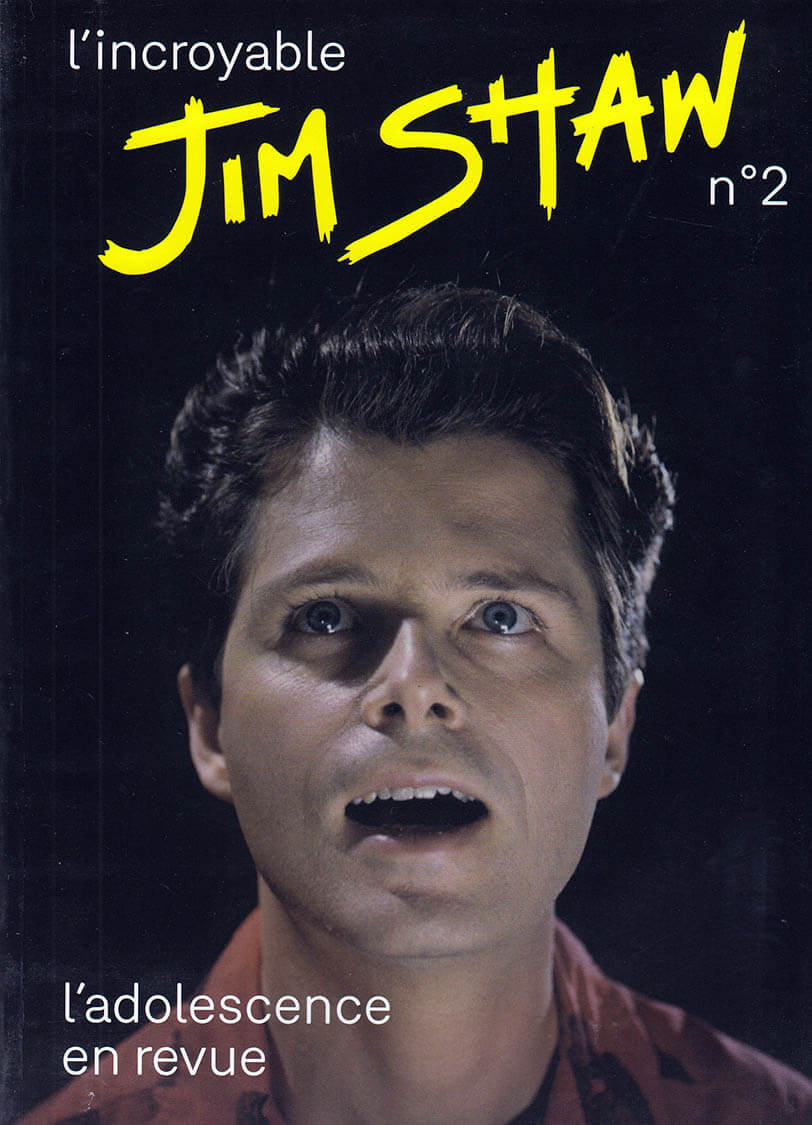
Jim Shaw
L'Incroyable is a monographic magazine dedicated to an artist's teenage years and his cultural background. This second issue focuses on Jim Shaw's Californian youth between the late 1950s and the beginning of the 1970s.
34 contributors—including Jim Shaw, Tony Oursler and Cary Loren—discuss childhood, adolescence, being a student in California in the 1970s, Mike Kelley, comic books, drawing, painting, California, the hippies, LSD, Charles Manson, the Vietnam War, Richard Nixon, My Mirage and Oism, Born Again Christians, catechism, transhumanism, cyborgs, Scientology and the Church of Satan, Terrence Malick, the Beat Generation, counter-culture, Gilbert Shelton, Robert Crumb, Janis Joplin and Basil Wolverton, Michigan, Ann Arbor, proto- punk, Destroy All Monsters, MC5, John Sinclair, and Tiki culture.
Works by Mathilde Agius, Joan Braun, Bertrand Dezoteux, Golgotha, groupe CCC – Alice Gavin and Valentin Bigel and École Duperré Paris students, Jérémy Piningre, Jim Shaw, Pierre Vanni.
Founded in 2015 by artist Clotilde Viannay, L'Incroyable magazine is dedicated to adolescence and retraces the teenage years of a personality, examining the cultural context of his youth.
The magazine is extended by the “Mini” series. Each book immerses itself in the youth of artists through an interview about their teenage years.
Jim Shaw (born 1952 in Midland, Michigan, lives and works in Los Angeles) is an atypical figure in the Californian art world, sharing with Paul McCarthy and Mike Kelley a similar desire to produce an immersive visual oeuvre aimed at exploring the dark side of the American psyche.
Texts by Philippe Aronson, Jacques Barbéri and Yves Ramonet, Claire Barliant, Laura Ben Hayoun, Mathieu Buard, Robert Buchard, Laurent Courau, Michel Croce-Spinelli, Michel Parbot, Jill Gasparina, Étienne Greib, Doug Harvey, Yves-Alexandre Jaquier, Cary Loren, Alex Mar, Robert Somma, Philippe Vasset, Clotilde Viannay, interviews with Jim Shaw, Tony Oursler, Cary Loren, Neil Harbisson, Natasha Vita-More, Gilbert Shelton.
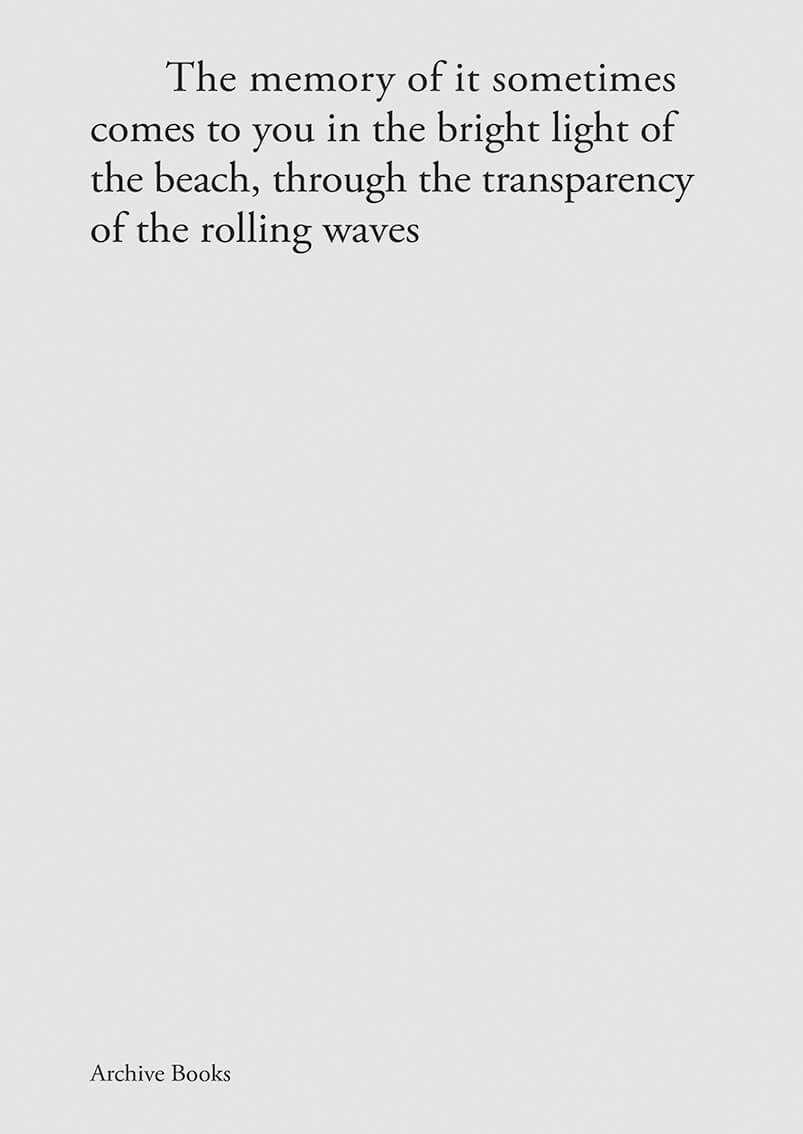
Encircling the Image of Trauma
This book tiptoes between aesthetics and ethics; it proposes to rethink trauma in its necessity as well as impossibility to be represented and understood.
The traumatic experience of violence marks social orders and imbues history. How does it reach beyond distress and pain? This collection of works interrogates alternative narratives: The traces of trauma may also comprise a subversive potential, which withdraws from the hold of power and instead makes room for a sense of history's vulnerability.
Thoughts, artistic contributions and text, most of them produced especially for this volume, move around notions of trauma, in an attempt to encircle moments, at which translation of meaning seems suddenly suspended.
Contributions by Pavel Büchler, Anca Benera & Arnold Estefan, Wendelien van Oldenborgh, Jenny Edkins, Aurélien Gamboni & Sandrine Teixido, Unica Zürn, Falke Pisano, Katja Mater, Georges Perec, Andrea Bellu, Ben Seymour, Natascha Sadr Haghighian, Gitte Villesen.
Published with Centre d'Art Contemporain Genève.
published in March 2020
English edition
13 x 20 cm (softcover)
240 pages (ill.)

Marion Baruch
First comprehensive monograph on Marion Baruch's work. This edition presents a broad span of Baruch's oeuvre, from the 1960s to her recent textile production. It includes three essays—by Fanni Fetzer, Martin Herbert, and Noah Stolz—as well as polyphonic focus texts by curators, friends, and art historians from the artist's circle, all providing compelling insights into her works and methods.
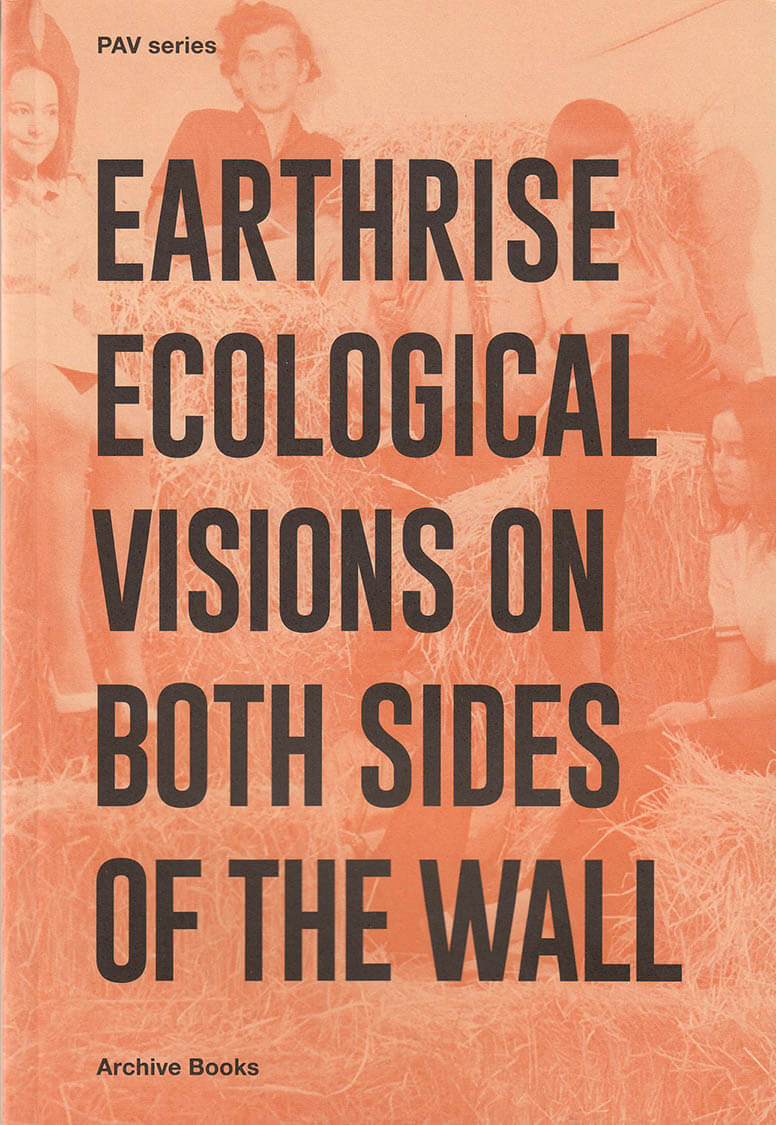
Earthrise
There is no question that ecological ideas acquired a central role in contemporary episteme. In contrast, the heuristic function that these ideas can assume in the current polarisation is questionable: that which, over the last decade, has identified the environmental crisis with the (categorical and totalitarian) concept of the Anthropocene.
Ecological discourse positioned itself inside historically situated trajectories that contributed to the transformation of aesthetical paradigms and political practices. In the scenario that 1968 opened up, the transversal nature of subjectivity allowed it to cover different fields, beginning with the tension between the logic of a unitary discourse and the creation of a multiplicity of possible worlds, between the molar and the molecular, the micro and the macro.
Ecological thought, as such, cannot help but conflict with that which is assumed to be homogeneous and constant, with that which forces the earth to be centred, measured, and expropriated, just as life must be biogenetically controlled, colonised, and subjected to patriarchy.

Ventoline #1 – été 2020
Ventoline est un fanzine né à la fois d’un enthousiasme quotidien pour ce qui se rapporte à la musique, et d’une véritable lassitude face à la quasi-absence de paroles féminines autour de ce vaste sujet. Commenter, critiquer, prescrire, partager ses histoires, ses goûts, ses dégoûts, en somme, sa culture musicale…
Pourquoi si peu de femmes s’autorisent à le faire? Même lorsqu’elles programment, organisent, sonorisent des concerts, lorsqu’elles mixent tous les week-ends, pogotent au premier rang, lorsqu’elles sortent des disques, dessinent des affiches et récurent les tréfonds de Soulseek. Même lorsqu’elles produisent et consomment de la musique.
Le but de ce fanzine ne sera ni d’émettre des classements, ni de théoriser savamment afin d’être prises au sérieux. La musique nous a construites personnellement et socialement, il s’agira donc de partager nos expériences liées à elle —heureuses comme foireuses—, nos observations, nos fantasmes, nos figures tutélaires.
Ce que ça fait, entre autres, de tourner pendant un mois dans un van, de passer pour la potiche de service ou de se prendre une claque au détour d’une compile. De Portland à Barcelone, en passant par Paris, Marseille, Bruxelles, Lyon et Leipzig, une douzaine de mélomanes polymorphes ont prêté leur voix à ce premier numéro de Ventoline.
(ENG)
Ventoline is a French music zine written and illustrated by women only. The first issue includes contributions by Camille Potte, Louise Bouchu, Anouck Eychenne, Leslie Chanel, Marouchka Payen, Diane Malatesta, Maïssa Daoudi, Hélène Degand, Sarah-Louise Barbett, Inès Di Folco, as well as interviews of Cristina Daura and Aubrey Hornor.
17 x 25 cm, 32 pages printed on newspaper
more on https://ventoline.octavie.club

Lez Talk: a collection of black lesbian short fiction
S. Andrea Allen, Lauren Cherelle
A necessary and relevant addition to the Black LGBTQ literary canon, which oftentimes overlooks Black lesbian writing, Lez Talk is a collection of short stories that embraces the fullness of Black lesbian experiences. The contributors operate under the assumption that "lesbian" is not a dirty word, and have written stories that amplify the diversity of Black lesbian lives.
At once provocative, emotional, adventurous, and celebratory, Lez Talk crosses a range of fictional genres, including romance, speculative, and humor. The writers explore new subjects and aspects of their experiences, and affirm their gifts as writers and lesbian women. Beginning with Sheree L. Greer's "I Can't Turn it Off," a short, powerful tale imbued with socio-political undercurrents, the collection also includes work from Claudia Moss, LaToya Hankins, Lauren Cherelle, K.A. Smith, S. Andrea Allen, Faith Mosley, and Eternity Philops.

Girls, Visions and Everything
It's summer in New York City and the streets are sizzling. Below 14th Street the girls at the Kitsch-Inn are hard at work on their new lesbian version of A StreetCar Named Desire. As the temperature rises, lesbian-at-large Lila Futuransky is looking for adventure, with her keys in her pocket and a copy of On The Road in her hand.
A fast-paced, spirited romp through politics and sexuality, Girls, Visions and Everything offers a funny, affectionate portrait of a group of struggling young artists trying to find meaning in their changing world.

exit ambition
Exit Ambition is a catalogue of practices, documents, videos, and other projects - virtual & actual. The book operates as an incomplete index of a series of installations, instructions, anti-plays, performance scores, descriptions, etc.
Jake Reber lives and works in Buffalo, NY, where he co-curates hystericallyreal.com.
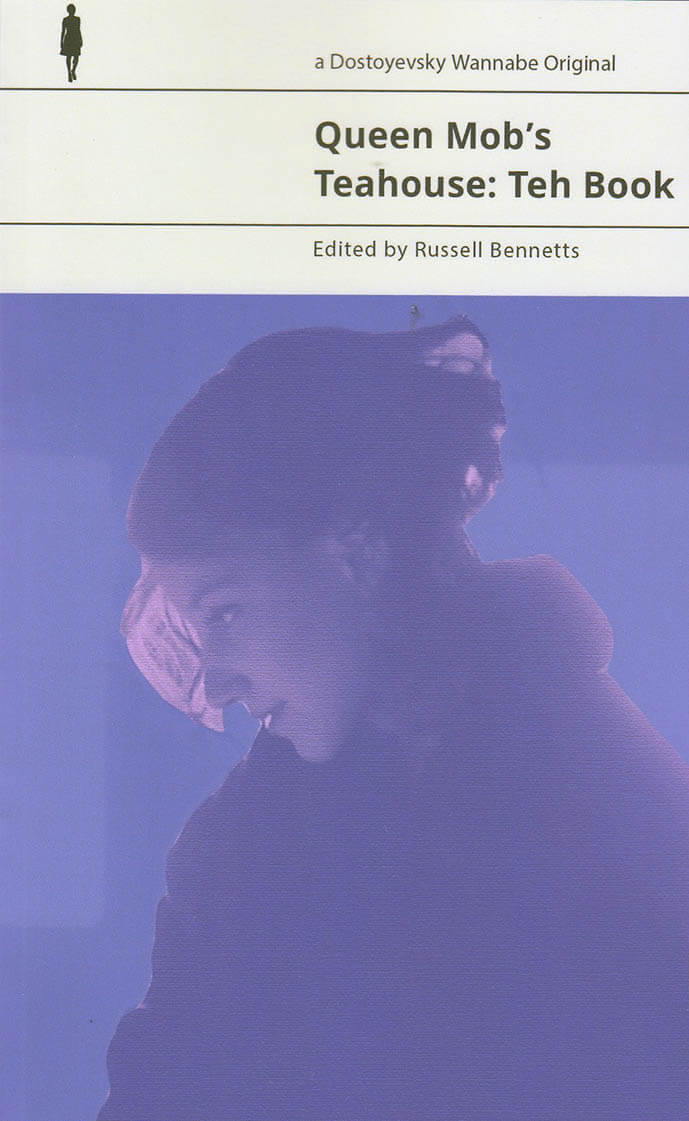
Queen Mob's Teahouse: Teh Book
Queen Mob's Teahouse is an online literary magazine. Queen Mob's Teahouse: Teh Book is this volume. All new, no doubts.
"Everyone has come for tea! Poets, robots, literary critics, essayists, philosophers and clouds, beamed in from around the world to think about a new order and remind you that literature really is the cure for what ails you. A humane and diverse collection of voices getting to grips with their human condition, and yours, and the end of the world, too." - Octavia Bright, co-host of Literary Friction
Queen Mob's Teahouse: Teh Book was edited by Russell Bennetts and features work by the following authors.
Setsuko Adachi, Rion Amilcar Scott, Russell Bennetts, Gem Blackthorn, Robert Boucheron, M. Soledad Caballero, Caroline Cabrera, S Cearley, Dorothy Chan, Trinie Dalton, Dana Dawud, Amanda Earl, Icess Fernandez Rojas, Jeremy Fernando, Claire Rudy Foster, SJ Fowler, Patricia Garcia, Mark Gluth, Eloise Grills, Allison Grimaldi-Donahue, Brinda Gulati, Judson Hamilton, Susan Harlan, Heather Hughes, Erik Kennedy, Naveen Kishore, Rauan Klassnik, Virginia Konchan, Keith Kopka, Nate Lippens, Reb Livingston, Marissa Maciel, Scott Manley Hadley, rob mclennan, Jasminne Mendez, Lupe Mendez, Calliope Michail, Thomas Molander, Deborah D.E.E.P. Mouton, Jason Novak, Emily O’Neill, Elizabeth Onusko, Robyn Maree Pickens, Whiskey Radish, Colin Raff, Reyes Ramirez, Christina M. Rau, Raquel Salas Rivera, Vlad Savich, Michael J Seidlinger, Medha Singh, George Szirtes, Eileen R. Tabios, Chris Tse, Leah Umansky, Nadia de Vries and Kimmy Walters.
Cover design and finishing touches on the typesetting by Shuwei Bennetts and Dostoyevsky Wannabe. Cover photo of Julia Frakes by Kathryn LeSoine.
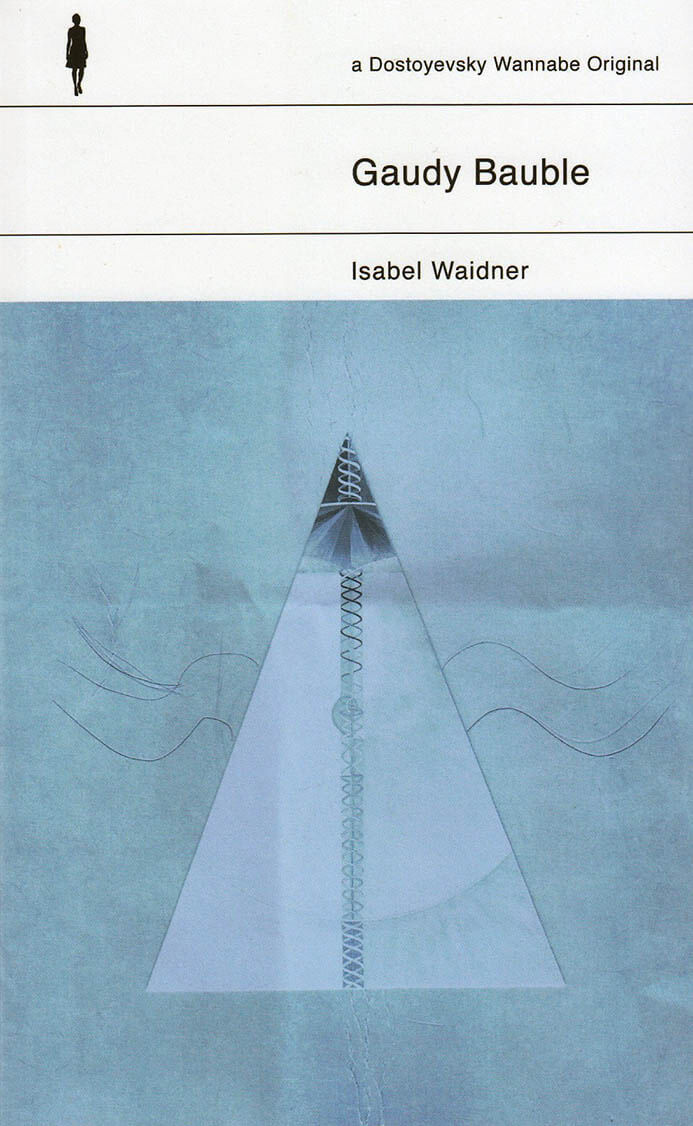
Gauby Bauble
Gaudy Bauble stages a glittering world populated by GoldSeXUal StatuEttes, anti-drag kings, Gilbert-&-George-like lesbians, maverick detectives, a transgender army equipped with question-mark-shaped helmets, and birds who have dyke written all over them. Everyone interferes with the plot. No one is in control of the plot. Surprises happen as a matter of course: A faux research process produces actual results. Hundreds of lipstick marks reanimate a dying body. And the Deadwood-to-Dynamo Audience Prize goes to whoever turns deadestwood into dynamost.
Gaudy Bauble stages what happens when the disenfranchised are calling the shots. Riff-raff are running the show and they are making a difference.
"I'm besotted with this beguiling, hilarious, rollocking, language-metamorphosing novel. The future of the queer avant-garde is safe with Isabel Waidner." - Olivia Laing
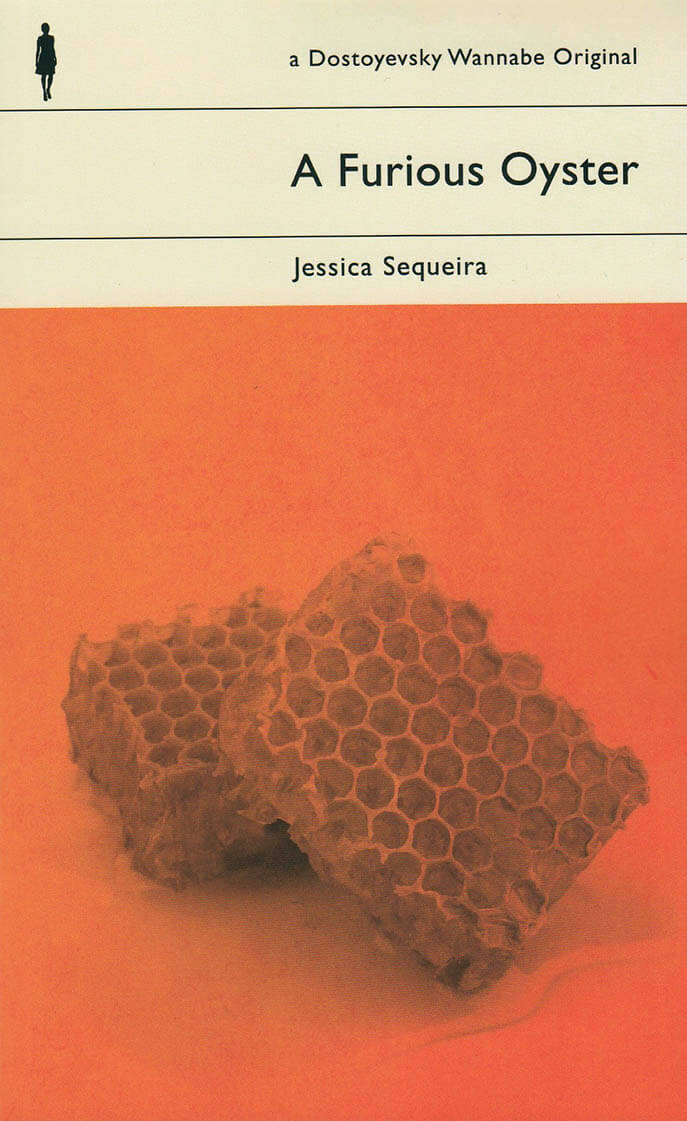
A Furious Oyster
On a street of jacarandas in Santiago de Chile, a scientist in her laboratory analyses an intriguing set of data. Storms in the city are not only meteorological events, but generate a certain force that permits the dead to intervene in human lives before definitively passing on. Now the poet Neruda has appeared on the machine's radar, and the scientist is compiling a dossier dedicated to the writer. Her documentation includes Neruda's visits to Santiago as well as other fragments of his consciousness produced by the storm - lost memoirs, an erotic dream, impressions of the poet from the afterlife.
From beyond the grave Neruda helps his followers, observes a budding romance, comforts a grieving hotel owner and sends literary enemies on a wild goose chase to the south of the country. The title A Furious Oyster comes from a line in Neruda's poem 'El desenterrado' [The unburied], in which the poet imagines the Spanish Count of Villamediana rising from his tomb to visit the earth, the 'furious oyster' of his ear once more able to hear the living.
JESSICA SEQUEIRA was born in San Jose, California and currently lives in Santiago de Chile. Her works include the collection of stories Rhombus and Oval (What Books) and the collection of essays Other Paradises: Poetic Approaches to Thinking in a Technological Age (Zero). Her translations include Adolfo Couve's When I Think of My Missing Head (Snuggly), Sara Gallardo's Land of Smoke (Pushkin), Liliana Colanzi's Our Dead World (Dalkey Archive), Hilda Mundy's Pyrotechnics (We Heard You Like Books) and Maurice Level's The Gates of Hell (Black Coat).

overlove
After a moment of possible eye contact at a gig, my attraction to the band's drummer - Curt - snowballed into limerent obsession. The unsent letters documenting my crush form the basis of overlove: a non-fiction novella concerned with love, boundaries, leaky jars and the female gaze in today's context of digital communication, millennial malaise and searching online for something 'more'.
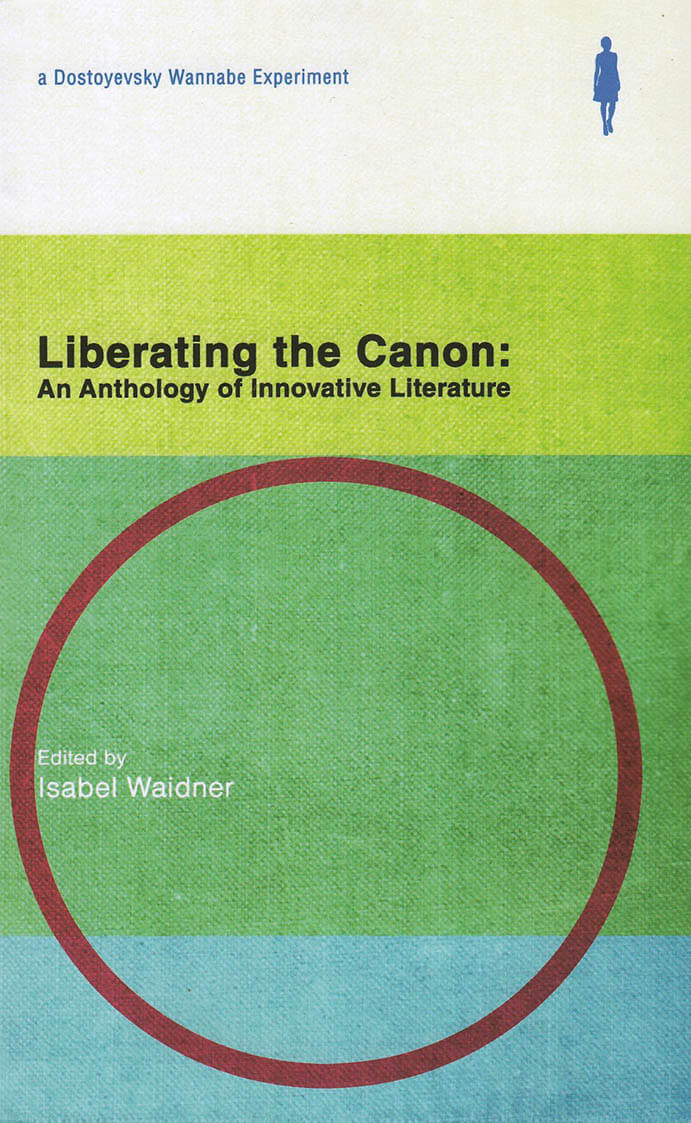
Liberating the Canon
Liberating the Canon is an edited anthology capturing the contemporary emergence of radically innovative and nonconforming forms of literature in the UK and US. Historically, sociopolitical marginalisation and avant-garde aesthetics have not come together in UK literature, counterintuitively divorcing outsider experience and formal innovation. Bringing together intersectional identity and literary innovation, LTC is designed as an intervention against the normativity of literary publishing contexts and the institution 'Innovative Literature' as such. More widely, if literature, any literature, can act as a mode of cultural resistance and help imagine a more progressive politics in Tory Britain and beyond, it is this.
Contributors are Mojisola Adebayo, Jess Arndt (US), Jay Bernard, Richard Brammer, Victoria Brown, SJ Fowler, Juliet Jacques, Sara Jaffe (US), Roz Kaveney, R. Zamora Linmark (US), Mira Mattar, Seabright D.Mortimer, Nat Raha, Nisha Ramayya, Rosie Snajdr, Timothy Thornton, Isabel Waidner, Joanna Walsh and Eley Williams.
Isabel Waidner is a writer and cultural theorist. She is the author of three books of innovative fiction, most recently Gaudy Bauble (Dostoyevsky Wannabe, 2017), which is currently longlisted for the Republic of Consciousness Prize for "hardcore literary fiction and gorgeous prose". Her articles and short fictions have appeared or are forthcoming in journals including 3: AM, Berfrois, Configurations, The Happy Hypocrite, The Quietus and Minor Literature[s]. She is also the editor of Liberating the Canon: An Anthology of Innovative Writing (Dostoyevsky Wannabe, 2018) which explores the relationship between identity, intersectionality and innovation in literature. As part of the indie band Klang, Waidner released records on UK labels Rough Trade (2003) and Blast First (2004). She is a lecturer in English and Creative Writing at Roehampton University, London, UK.
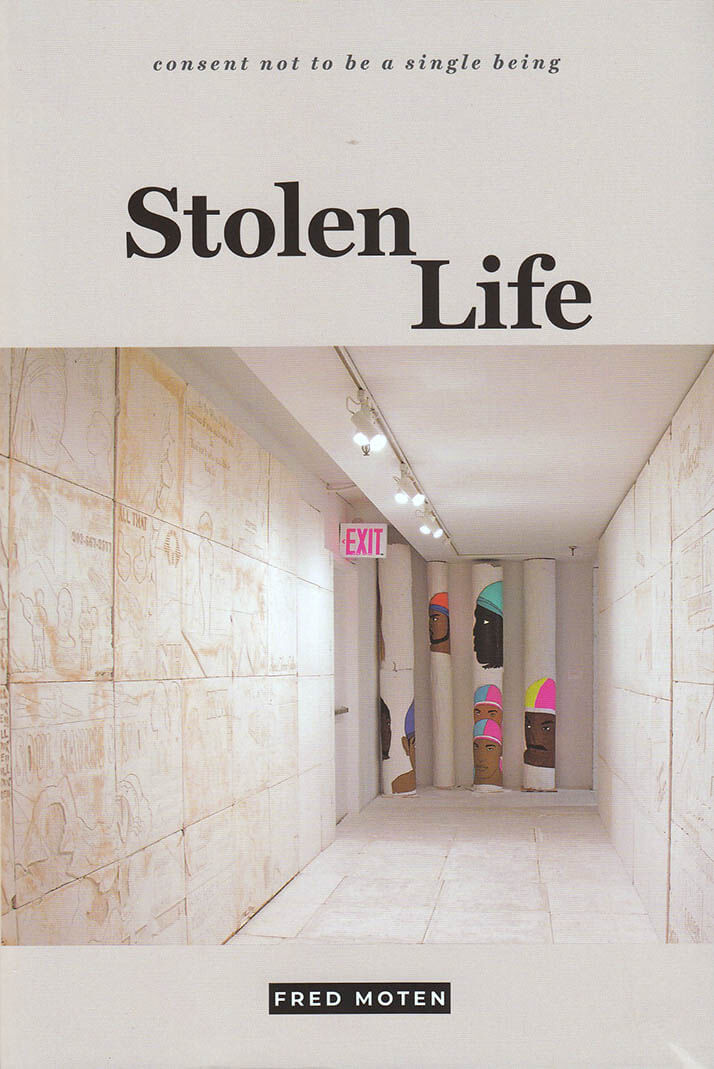
Stolen Life
In Stolen Life—the second volume in his landmark trilogy consent not to be a single being—Fred Moten undertakes an expansive exploration of blackness as it relates to black life and the collective refusal of social death. The essays resist categorization, moving from Moten's opening meditation on Kant, Olaudah Equiano, and the conditions of black thought through discussions of academic freedom, writing and pedagogy, non-neurotypicality, and uncritical notions of freedom.
Moten also models black study as a form of social life through an engagement with Fanon, Hartman, and Spillers and plumbs the distinction between blackness and black people in readings of Du Bois and Nahum Chandler. The force and creativity of Moten's criticism resonate throughout, reminding us not only of his importance as a thinker, but of the continued necessity of interrogating blackness as a form of sociality.
"2018 must go down for me as the year of Fred Moten’s trilogy: Black and Blur, Stolen Life, and The Universal Machine. You could say they’re essays about art, philosophy, blackness, and the refusal of social death, but I think of them more as a fractal universe forever inviting immersion and exploration, a living force now inhabiting my bookshelf." — Maggie Nelson, Bookforum
Fred Moten is Professor of Performance Studies at New York University and the author of Black and Blur and The Universal Machine, both also published by Duke University Press, and In the Break: The Aesthetics of the Black Radical Tradition.
Published July 2018
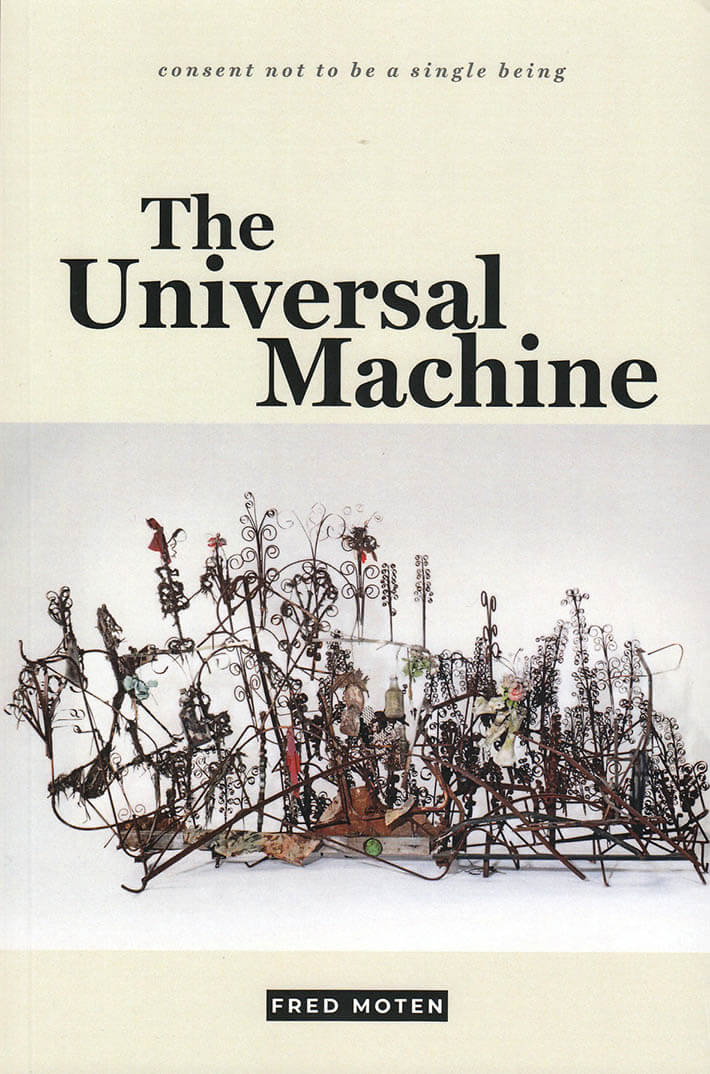
The Universal Machine
In The Universal Machine — the concluding volume to his landmark trilogy consent not to be a single being — Fred Moten presents a suite of three essays on Emmanuel Levinas, Hannah Arendt, and Frantz Fanon, in which he explores questions of freedom, capture, and selfhood. In trademark style, Moten considers these thinkers alongside artists and musicians such as William Kentridge and Curtis Mayfield while interrogating the relation between blackness and phenomenology.
Whether using Levinas's idea of escape in unintended ways, examining Arendt's antiblackness through Mayfield's virtuosic falsetto and Anthony Braxton's musical language, or showing how Fanon's form of phenomenology enables black social life, Moten formulates blackness as a way of being in the world that evades regulation. Throughout The Universal Machine—and the trilogy as a whole—Moten's theorizations of blackness will have a lasting and profound impact.
Published July 2018
Fred Moten is Professor of Performance Studies at New York University and the author of Black and Blur and Stolen Life, both also published by Duke University Press, and In the Break: The Aesthetics of the Black Radical Tradition.